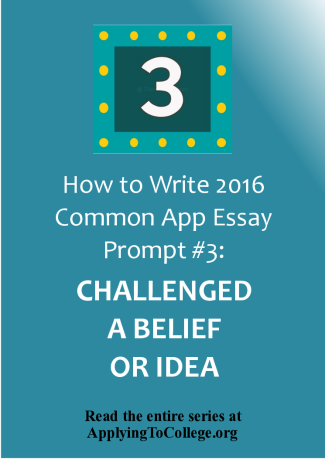Guest blogger: Joanna Novins
I’m a professional writer and analyst by training, but the challenges facing students with learning differences is a topic that is near and dear to my heart; I teach writing to students with learning differences and I am the proud parent of a smart, successful, and highly independent college student with a learning difference.
The information contained in this article is derived from interviews with administrators and disabilities professionals from a range of colleges including Union College, Williams College, Adelphi University, University of Connecticut, and Rensselaer Polytechnic Institute (RPI); and with LD students.
Students with Learning Differences – What You Should Know (Or Ask) When Applying to Colleges
Applying to colleges involves a lot of research, and questions like the kinds of programs a school offers, its academic philosophy or mission, its academic and social reputation, and the size and location, culture and feel, to name but a few. But if you’re a student with learning differences, or the parent of a student with learning differences, there are even more questions you should be asking.
First, Know Your Rights.
Students with learning differences are protected against discrimination in colleges and universities by the Americans with Disabilities Act and its subsequent amendments. The law requires that an LD student’s accommodation’s file be reviewed and that professors be informed that they have a student requiring accommodations in their class. When applying to college, it’s important to understand how different schools handle this process.
Whom Should You Talk To?
While the admissions officers I spoke to were eager to help, I found the majority weren’t particularly well-informed about disability services and often immediately routed me to a college disabilities office or center. (In one instance I was routed to an administrator who no longer worked at the school.)
Your best bet is to check the campus website for an office providing disability or student support services and start your research there. For the best response, I’d advise against calling during lunch time…
Be sure and ask about the background of the person you’re speaking with; just because a school has an office or center for disability support services, it doesn’t necessarily mean it’s staffed by professionals (you may be talking to a student) or by people with a background in special education.
Who Should Call (Or, When is it Okay to be a Helicopter Parent)?
In general, when applying to colleges, admissions officers prefer that students make the call because they want to know it’s the student who is interested in their school, not the parent, and because they want to know that they’re dealing with a student who is able to operate independently.
In the case of disability programs, however, I found that while college disability professionals were delighted to speak with students, they preferred to speak with the parents. As one noted, “I’m impressed when students call, but they don’t always know what information to ask for.” Parents are usually better informed about their student’s learning differences and current accommodations and know what support services to ask about.
When It’s Not Okay to Be a Helicopter Parent.
Bear in mind, that after a student is admitted to a college or university and is registered as having a disability that requires accommodations, it’s up to the student to self-identify and ensure that appropriate accommodations are in place. (If a student doesn’t come in to the disabilities office and ask for the accommodations, nothing happens.) This is a point administrators repeated and that I’ll repeat throughout this blog. Most colleges cannot, or will not, speak to parents about academic issues or problems with accommodations; indeed, the University of Connecticut requires students create a list of people the school is permitted to disclose information to—it’s up to the students to put one, or both parents on the list. [1]
What Should You Ask? (Or, What I Asked)
I started by asking administrators how many LD students they had registered. I found that not every school had that information easily at hand, but when they, did roughly 10% of the student body was registered. Shelly Shinebarger, a disabilities professional and Director of the Accommodative Services Office at Union College, estimated that 200 of the college’s 2000+ students are registered as learning disabled. A staff member at UConn’s Center for Students with Disabilities estimated that 3000 of their over 30,000 students are registered, noting that the number is “increasing dramatically every year.” A staff member at Adelphi University estimated that about 400 of their 5000+ member student body were registered. Williams College’s Director of Accessible Education, G.L.M. Wallace, had no solid numbers, but also estimated that 10% of the college’s 2000 students have learning differences.
However, when I asked how many of their registered students were self-identified, the numbers dropped precipitously. Shelly Shinebarger said, “This year I have about 35 students, of them about 20 or 25 have contacted me.” UConn’s representative said, “We have some students who are registered but who’ve never used the accommodations, others who register and seek regular support.”
Both administrators stressed that the level of support a school provides depends on how actively the student seeks it out.
I’d add, however, that the level of support a school provides also depends on the school’s willingness and ability to commit resources. As Shelly Shinebarger pointed out, “It does make a difference what school you apply to—private schools are smaller and more personal, but have fewer resources. Larger schools have more resources, but you may be just a number to them.”
Ask About Numbers and Do the Math:
Shinebarger said that she has one part-time social worker and a part-time resident director (a young professional who works about 10 hours a week), as well as one or two seniors who typically have learning disabilities. Shinebarger matches the seniors with the students and then encourages them to meet weekly (basically executive function coaching). (Remember, that’s for roughly 200 registered students, 25-35 self-identified.) Williams College, which is in the process of revamping its program, employs a director, an assistant, and two students.
In contrast, a student employee who described UConn’s Center for Students with Disabilities said that the center has six case managers, professional staff members, a project manager, office manager, exams coordinator (all students requiring extended time on exams take them at the Center, unless they negotiate different accommodations with their professors), a technology manager, interpreter coordinator, as well as strategy instructors tailored to each student’s needs. (Basically, that’s 6 case managers for 3000 students; assuming 300 self-identify, that’s 6 for 300.) She encouraged me to check out the Center’s website, which is impressive. UConn is less expensive than a private school like Union, but if you look at the Center’s website, some of the services, such as strategy instructors, require additional fees.
Every LD student is different, so be sure to ask about specific services, including:
- What mechanisms the college uses to determine appropriate accommodations
- What means they have of providing these accommodations
- What mechanisms they provide the student to keep professors informed of his/her accommodations
- Whether the accommodation letter system is online or manual, and if is there a “reminder system” for students
Helpful Links for Services for Students with Learning Disabilities:
Rensselaer Disability Services for Students (DSS)
Union College Accommodative Services Office
Adelphi University Disability Support Services
Williams College Disability Support Services
UConn Center for Students with Disabilities
[1] For more information about student and parental rights, look into The Family Educational Rights and Privacy Act (FERPA) (20 U.S.C. § 1232g; 34 CFR Part 99). FERPA is a Federal law that protects the privacy of student education records. The law applies to all schools that receive funds under an applicable program of the U.S. Department of Education.
 Joanna Novins holds a master’s degree from the Johns Hopkins School of Advanced International Studies and a bachelor’s degree with honors in history from Williams College in Williamstown, Massachusetts. She is an independent writing consultant for First Impressions College Consulting, teaching college essay writing to students of all abilities.
Joanna Novins holds a master’s degree from the Johns Hopkins School of Advanced International Studies and a bachelor’s degree with honors in history from Williams College in Williamstown, Massachusetts. She is an independent writing consultant for First Impressions College Consulting, teaching college essay writing to students of all abilities.

 Interesting Stats from 2015-2016 Applications:
Interesting Stats from 2015-2016 Applications:













